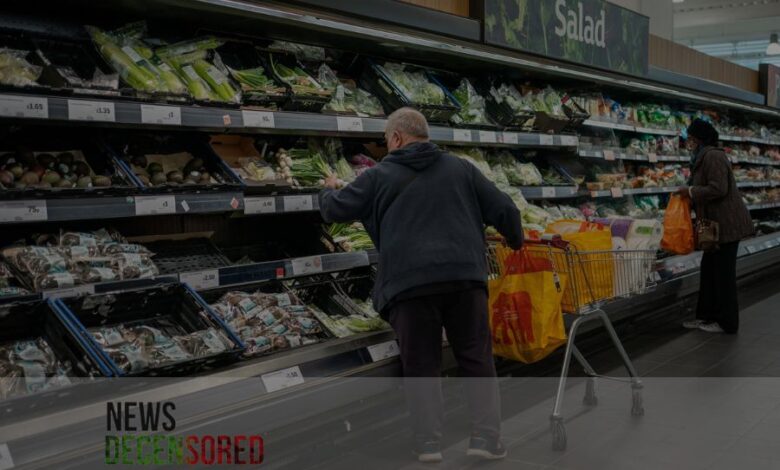UK Inflation Hits Two-Year Low as some food prices dropped

A glimmer of hope emerged for British consumers as the latest inflation figures revealed a drop to 3.2% in the year to March. This marks the lowest level in two and a half years and offers a welcome respite from the recent price surge. However, the news could be more precise, with experts cautioning that living costs remain a significant burden.
The decline in inflation is attributed primarily to slowing food price rises. Items like meat, furniture, and household goods decreased in cost compared to the previous month. However, it’s important to remember that “lower inflation” doesn’t signify falling prices. Prices are still rising, just at a slower rate. This means everyday items remain considerably more expensive than just two years ago.
The recent peak of 11.1% inflation in late 2022 seems like a distant memory, as the rate has been gradually declining. The initial surge was fueled by the post-pandemic demand boom coupled with global supply chain disruptions. The situation was further exacerbated by the war in Ukraine, which pushed up oil and gas prices and limited grain exports, leading to a spike in food costs.
Miles Johnson, a London student, exemplifies the ongoing struggle. He has resorted to extensive price comparison and working from home more often to manage rising food and travel expenses. He echoes the sentiment of many Britons: high prices show no signs of becoming genuinely manageable.
Despite the slight deviation from analyst expectations, the news is unlikely to deter the Bank of England from its potential plan to cut interest rates this year, possibly as early as June. Experts like Yael Selfin, chief economist at KPMG UK, predict inflation will return to the Bank’s 2% target soon, paving the way for potential rate cuts.
Chancellor Jeremy Hunt hailed the figures as “welcome news” and highlighted the recent National Insurance cut to ease the financial burden on employed and self-employed individuals. However, this optimism is only sometimes shared.
Opposition figures argue that the current reality paints a different picture. Rachel Reeves, Labour’s shadow chancellor, emphasizes the continued strain on working people, citing high shop prices, rising monthly mortgage bills, and inflation exceeding the Bank of England’s target.
The Bank of England holds its next interest rate decision in May. With rates currently at their highest level in 16 years, their strategy focuses on slowing price rises by making borrowing more expensive. This dampens consumer spending and encourages saving, ultimately aiming to reduce demand and inflation.
Governor Andrew Bailey indicated a potential shift towards cutting rates in the coming months, depending on further economic data. Interestingly, US inflation outpaced the UK’s for the first time since early 2022. Separate data released on Wednesday revealed a 9.2% increase in private rents over the past year, reaching an average of £1,285 in England. While the following inflation figure for April is expected to show a more significant decline due to the lower energy price cap, household budgets may still feel the pinch from existing higher direct debits.
The UK’s journey towards a stable economy remains ongoing. The recent drop in inflation offers a spark of hope, but the full impact on household finances is yet to be fully realized.




